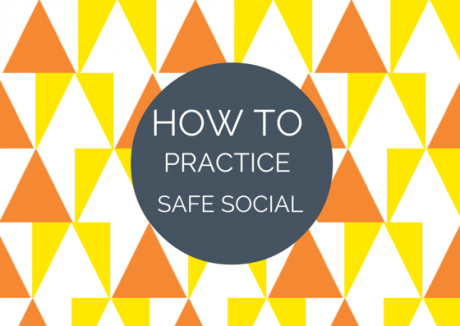My Granny always told me that words have impact—that what I say has implications. Yours probably did too. But what our grandmas didn’t realize, was that social media would change the rules. Our words now not only have impact, they have reach. The need for having a social media policy is becoming more and more important.
A Social Media Policy is the Best Policy
I love social media. Social networks give billions the opportunity to present themselves as three dimensional beings on a grand scale. The internet gives voice to personality. The internet leaves room for personal interpretation and opinion. And occasionally, the internet leaves room for clashes.
We’ve all seen them. Some of us have been on the receiving end. Some of us were just passing by on the information superhighway. Regardless of your role, it’s safe to say that many of us have seen our fair share of Twitter beefs and Facebook battle royales. Cyber tiffs cover broad topic areas including, but not limited to: the proper pronunciation of GIF, the moon landing and social justice.
Some would even say internet fights are the new normal, but should they be?
All forms of communication come embedded with a code of conduct—whether obvious or implied. As social media becomes the majority’s preferred method of communication, it raises the question: Should there be a a universal social media policy?
NPR has established a social media policy to equip their employees with tools to safely navigate the web. Inspired, I’ve decided to throw my hands into the ring. Below is a one size fits all social media policy guide I’ve devised. Follow my guidelines and you’ll be positively contributing to online conversations in no time!

It’s About Dialogue, Not Diatribes
The great thing about social media is that it’s inherently social. The internet gives people around the globe the ability to expand their horizons from the comfort of their computer screens.
It’s important to share your experiences online. Expressing your views is at the heart of the internet, but there is a way to do so responsibly. Dialogue is never one-sided. When disagreeing with someone online, make sure to open the floor to their point of view, and do so respectfully. Long-winded rants are just as unwelcome online as they are off.
Turn Tiffs Into Teachable Moments
When people have a platform to express themselves on, conflicts arise. But, just because a conversation starts off heated, it doesn’t mean that cooler heads can’t prevail.
It is normal and acceptable to hold dissenting opinions on a subject matter. It’s even okay to share your opposing viewpoints online. When everyone has equal space to present their points and are receptive to difference; they’re likely to learn something new.
On the internet, open-mindedness is the best social media policy. An open mind is a teachable one.

Social Media Has No Shelf Life. The Internet is Forever.
When Twitter announced it’s roll out for advanced search, the tool’s possibilities seemed endless. Twitter users now have the ability to search all public tweets written since the network’s 2006 start. As cool as the new feature is, it got me thinking about the negative implications of searchable content.
We often stop ourselves from posting unsavory content by first reflecting on whether we’d want our moms seeing it. Let’s take it a step further. Would you want your grandchildren seeing you swapping insults or spreading slurs on Twitter? Probably not. If the now infamous Sony hack’s taught us one thing, it’s that even if we’re done with the past, the past is never done with us.
In social media, there’s no way to strike your internet interactions from public record. Don’t lose your job and your legacy due to irresponsible social media use. Remember to think before you tweet.
Do Your Homework
A healthy dose of skepticism never hurt anyone—especially where the internet is concerned. Before posting anything online, it’s important to consider the source and it’s context. Be thoughtful about what you share. As NPR states, “When we point to what others are saying, in the eyes of many we are effectively reporting that information ourselves.” Always confirm your sources before publishing. The same rule applies when tweeting from a corporate account or sharing something from your personal blog.
Know When To Take It Offline
Some things aren’t made for the internet. Just like those pics from your last college kegger, it’s important to know when to take certain content and conversations offline. Tonal cues and nuances are easily misconstrued in online exchanges. When you deem it necessary and appropriate, strive to clarify information either by phone or in person. Communicating online is great, but there’s nothing like the real thing!
Any social media policies I may have missed? Do you have any of your own? I’d love to hear them! Share them below in the comments section.

Leave a Reply